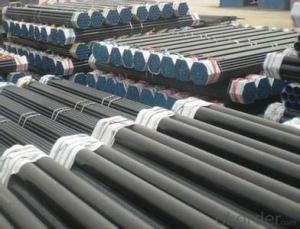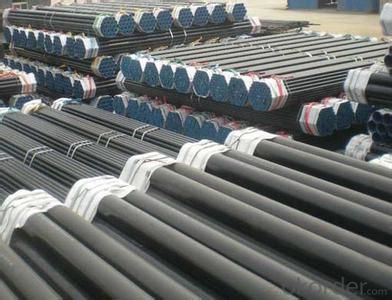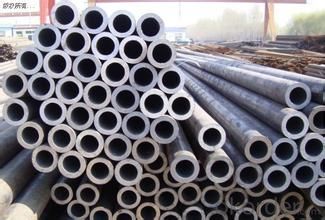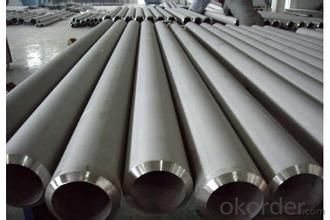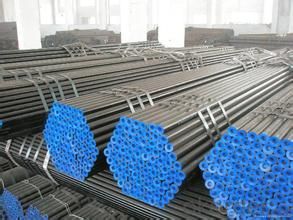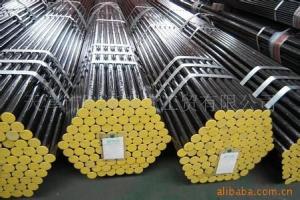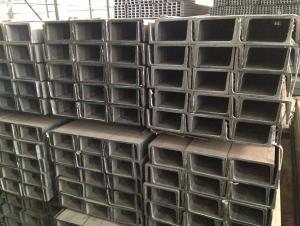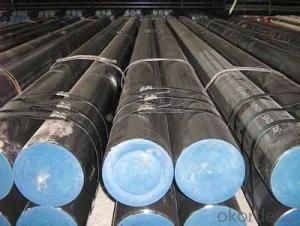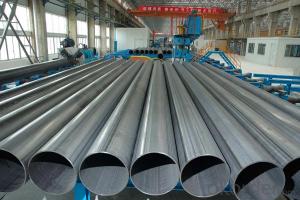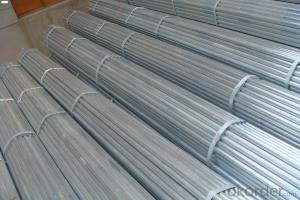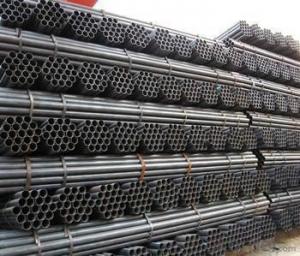Steel Pipe with High Quality and Best Price Q345 Q235
- Loading Port:
- China main port
- Payment Terms:
- TT OR LC
- Min Order Qty:
- 30 m.t.
- Supply Capability:
- 9000 m.t./month
OKorder Service Pledge
OKorder Financial Service
You Might Also Like
Product Description:
1、Structure of Steel Pipe with High Quality and Best Price Q345 Q235
Seamless steel pipe has a hollow section, a large number of pipes used for conveying fluid, such as oil, natural gas, gas, water and some solid materials, etc.. Compared to such as steel pipe and solid bar of steel, in flexural torsional strength are the same, the weight is light, is a kind of economic section steel, widely used in the manufacture of structural parts and mechanical parts, such as drill pipe, automobile transmission shaft, self frame as well as the construction of the steel scaffolding steel pipe manufacturing annular parts, can improve the material utilization rate, simplify the manufacturing process, material saving and working hours, has been widely used in steel pipe manufacturing.
2、Main Features of Steel Pipe with High Quality and Best Price Q345 Q235
·Highly demanded
·Durable
·Reliable
·resist corrosion
·
3、Steel Pipe with High Quality and Best Price Q345 Q235 Images:
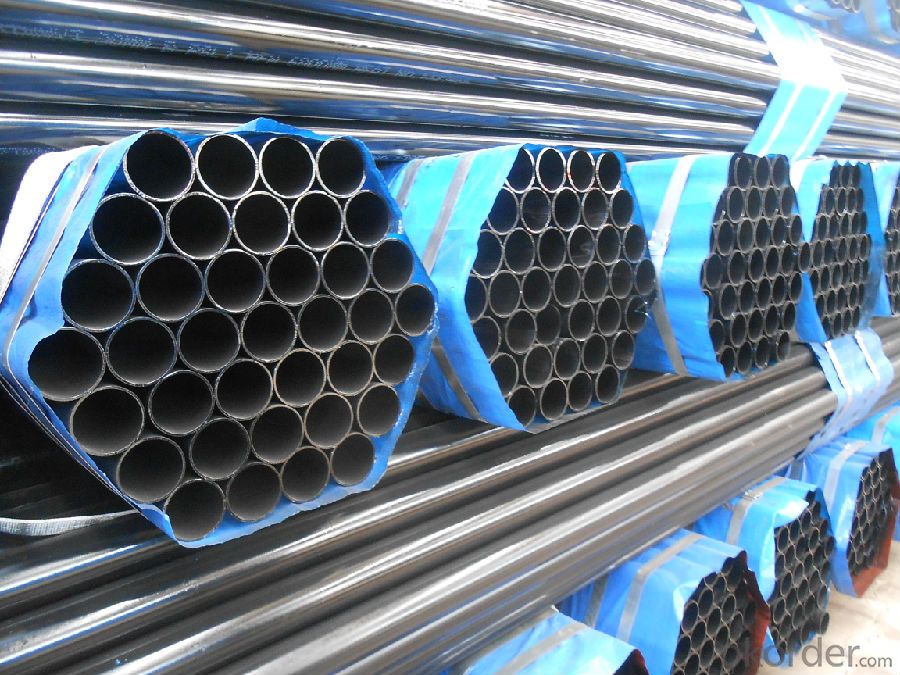
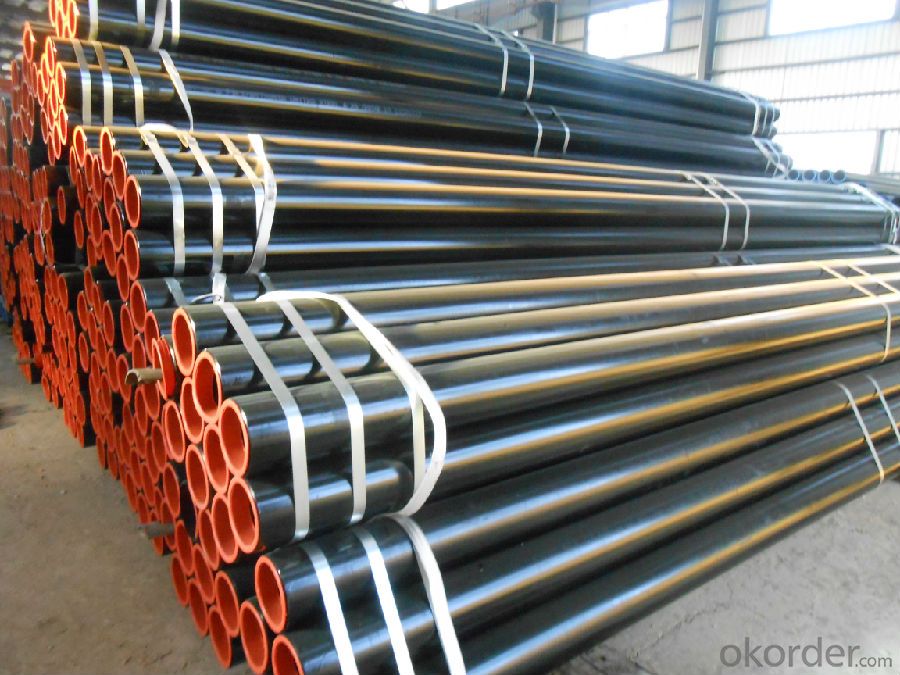
4、Steel Pipe with High Quality and Best Price Q345 Q235Specification:
Standard JIS, DIN, ASTM
JIS G3445-2006, JIS G3444-2006, JIS G3446-2004, DIN EN 10216-1-2004, DIN EN 10217-1-2005, DIN EN 10305, ASTM A106-2006, ASTM A53-2007, ASTM A789-2001, ASTM A1020-2002, ASTM A179-1990, ASTM A199Grade Cr-Mo alloy, Mo, ST35-ST52, Q195-Q345, CrNi alloy
15CrMo, 10CrMo910, 30CrMo, 15Mo3, 16Mo, St37, St52, St42, St45, Q235, Q345, Q195, Q215, Cr17Ni8, 1Cr13Mn9Ni1NThickness 2 - 50 mm Section Shape Round Outer Diameter 10 - 900 mm Secondary Or Not Non-secondary Application Structure Pipe Technique EFW Certification API Surface Treatment Paint Special Pipe API Pipe Alloy Or Not Non-alloy
Specifications
1.W.T from 2mm to 70mm
2.OD from 10 to 1200mm
3.product by our own factory
4.on time dilivery
5、FAQ of Steel Pipe with High Quality and Best Price Q345 Q235:
①How is the quality of your products?
Our products are manufactured strictly according to national and internaional standard, and we take a test
on every pipe before delivered out. If you want see our quality certifications and all kinds of testing report, please just ask us for it.
Guaranteed: If products’ quality don’t accord to discription as we give or the promise before you place order, we promise 100% refund.
②How about price?
Yes, we are factory and be able to give you lowest price below market one, and we have a policy that “ for saving time and absolutely honest business attitude, we quote as lowest as possible for any customer, and discount can be given according to quantity”,if you like bargain and factory price is not low enough as you think, just don’t waste your time.Please trust the quotation we would give you, it is professional one.
③Why should you chose us?
Chose happens because of quality, then price, We can give you both.Additionally, we can also offer professional products inquiry, products knowledge train(for agents), smooth goods delivery, exellent customer solution proposals.Our service formula: good quality+good price+good service=customer’s trust
SGS test is available, customer inspection before shipping is welcome, third party inspection is no problem.
Any question, pls feel free to contact us !
- Q: How are steel pipes used in the construction of offshore oil rigs?
- Steel pipes are commonly used in the construction of offshore oil rigs for various purposes. They are primarily utilized for drilling operations, transporting oil and gas from the seabed to the surface, and for the installation of pipelines and risers. These pipes are known for their strength, durability, and ability to withstand harsh offshore environments, making them an essential component in ensuring the safe and efficient extraction of oil and gas from deep-sea reserves.
- Q: How do you transport steel pipes safely?
- Steel pipes can be transported safely by properly securing them using appropriate restraints, such as straps or chains, to prevent shifting or movement during transit. Additionally, using suitable equipment and vehicles, such as flatbed trucks or trailers, with adequate support and cushioning, can help ensure the safe transportation of steel pipes. Regular inspections of the securing arrangements and adherence to relevant safety regulations are also crucial to maintain the safe transport of steel pipes.
- Q: What are the different types of steel pipe joints for underwater applications?
- Some different types of steel pipe joints for underwater applications include flanged joints, welded joints, and mechanical joints. Flanged joints involve connecting pipes by bolting together flanges at the ends. Welded joints are created by fusing the ends of pipes together using heat and pressure. Mechanical joints use couplings or connectors to join pipes together, typically with rubber seals to ensure a watertight connection.
- Q: How are steel pipes used in the power generation sector?
- Steel pipes are commonly used in the power generation sector for various applications such as transporting water, steam, and other fluids within power plants. They are used for conveying high-pressure steam to drive turbines and generate electricity, as well as for transporting cooling water to regulate temperature in power plants. Additionally, steel pipes are used in the construction of power plant infrastructure, including the fabrication of boiler tubes, condenser tubes, and other critical components that ensure efficient and reliable power generation.
- Q: Can steel pipes be used for hydronic heating systems?
- Yes, steel pipes can be used for hydronic heating systems. Steel pipes are commonly used in hydronic heating systems due to their durability, strength, and ability to withstand high temperatures and pressures. They are also resistant to corrosion, making them suitable for long-term use in these systems.
- Q: What type of steel pipe for security windows?
- General anti-theft window through the round tube is 3 cm square tube, 22.5 mm diameter round tube, also can use all square tube to do, if you want to median 304, the pipe is estimated more expensive, the market to do the price in 60 to 110 range. As for plastic steel, Anhui conch brand, the price of 180 this way. Aluminum alloy 110 to 230 specific look what material?!
- Q: How are steel pipes used in the manufacturing of oil refineries?
- Steel pipes are used in oil refineries for a variety of purposes, including transporting crude oil and other fluids, as well as for structural applications. They are commonly used for piping systems, carrying process fluids such as oil, gas, and water, throughout the refinery. Additionally, steel pipes are used to handle corrosive and high-pressure environments, making them essential for the safe and efficient operation of oil refineries.
- Q: What is the purpose of galvanizing steel pipes?
- The purpose of galvanizing steel pipes is to provide them with a protective coating that helps prevent corrosion and extends their lifespan.
- Q: How are steel pipes used in the manufacturing of ships?
- Steel pipes are used in the manufacturing of ships for various purposes, including structural support, fluid transportation, and ventilation systems. They are commonly used to create the framework of the ship, providing strength and stability. Additionally, steel pipes are used to transport fluids such as water, oil, and gas throughout the vessel. They are also utilized in the ship's ventilation system to ensure proper air circulation and maintain a safe environment for crew members.
- Q: What are the applications of stainless steel pipes?
- Stainless steel pipes have a wide range of applications due to their excellent properties. They are commonly used in industries such as oil and gas, chemical, pharmaceutical, food processing, and construction. These pipes are resistant to corrosion, heat, and pressure, making them suitable for transporting various fluids and gases. Additionally, they are used in plumbing systems, HVAC systems, structural frameworks, and even in decorative applications like handrails and furniture.
Send your message to us
Steel Pipe with High Quality and Best Price Q345 Q235
- Loading Port:
- China main port
- Payment Terms:
- TT OR LC
- Min Order Qty:
- 30 m.t.
- Supply Capability:
- 9000 m.t./month
OKorder Service Pledge
OKorder Financial Service
Similar products
Hot products
Hot Searches
Related keywords
